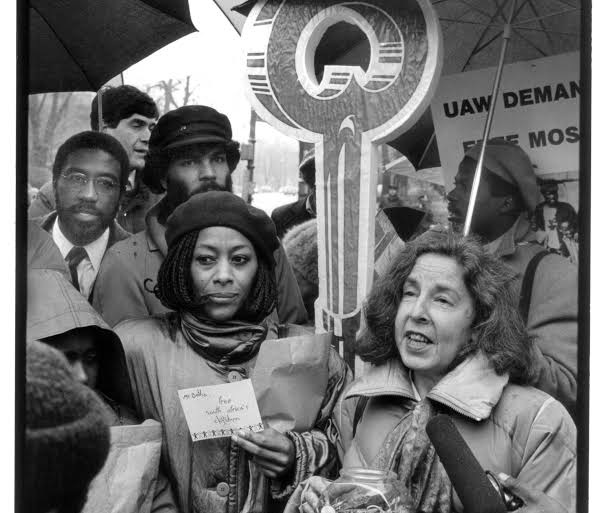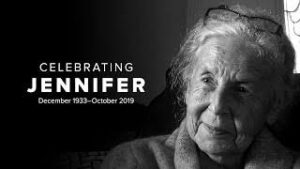Jennifer Davis Biography

Jennifer Davis Biography
Jennifer Davis was born in Johannesburg in 1933. She obtained a BA degree from the University of the Witwatersrand (Wits) in 1954 and subsequently held posts as secretary of the War Industries Board and part-time lecturer at the University of London. School of Economics. in South Africa, secondary school teacher and postgraduate assistant at Wits from 1955 to 1966.
Jennifer Davis was a committed anti-apartheid student activist at the university and became persona non grata in the 1960s. She was repeatedly harassed by security forces and then threatened with house arrest. The subsequent cumulative pressure drove her into exile in New York, United States of America (USA), beginning in 1966, where she dedicated efforts not only served the South African cause but also helped the poor states of the African continent as a whole.
In 1967,Jennifer Davis joined the staff of the American Committee on Africa/Africa Fund, the oldest anti-apartheid and pro-African democracy organization in the United States. As research director and executive director from 1981 to 2000,Jennifer Davis led ongoing efforts to create programs that ultimately succeeded in persuading the United States to impose economic sanctions against apartheid South Africa.
With extensive research and publications on American politics, especially in Africa,Jennifer Davids is often asked to testify and speak before the United States House of Congress, the United Nations, state legislatures, city councils, civic organizations, governing bodies universities and student organizations, bringing together to enlighten the world about the difficult situation of the African continent and South Africa.
She and Dumisani Khumalo (the current South African ambassador to the UN), then project director of the American Committee for Africa, built networks and alliances while campaigning to end US economic support for apartheid.
Through her tireless efforts and the organizations he mobilized, the United States pledged and ended its economic support for South Africa. Since 1967,Jennifer Davis visited and maintained close contacts with various leaders, organizations and activists throughout Africa, helping to change the negative image that prevailed about these world leaders.
She and her collaborators developed an extensive publication program promoting their human rights, politics, human rights and educational projects, campaigning for African independence and economic and social justice. These include newsletters, action alerts, educational briefings, brochures, and special reports, many of which are written and edited byJennifer Davis .
Jennifer Davis is an enthusiastic researcher and writer and has published extensively on American policy toward Africa, strongly advocating support for African countries.
Jennifer Davis efforts bore fruit when her dream of a liberated South Africa came true and her greatest honor was working as an election observer in Empangeni, KwaZulu-Natal in 1994 and being a special guest of former President Nelson Mandela’s presidency. inauguration that same year.
Since she left the American Committee on Africa and the African Fund in 2000, Davis has worked as a consultant on U.S. and African policy and serves on the boards of several U.S. organizations working to promote economic and political justice in Africa. These include Common Interest, the Association of Concerned African Scholars, and the Washington Office on Africa.
Her other special duties included participation in the International Commission of Inquiry into the Crimes of Racist and Apartheid Regimes in South Africa, Luanda, Angola, in 1981.Jennifer Davids also presented a report on the advisability of continuing international sanctions against South Africa in the 84th Conference. meeting of the American Society of International Law.
Jennifer Davids passionately served this country throughout her life, participating in the anti-apartheid solidarity movement and, after 1994, implementing various programs to support the black community. This includes drafting and delivering various documents for American church organizations in Africa, promoting debt relief for poor countries, and raising awareness about HIV and AIDS and the plight of women.
Jennifer Davids could have remained silent about the injustices that were occurring, but instead she made her voice heard and put herself at risk of deportation.Jennifer Davids intends to return to South Africa after many years of undeniable and honorable contribution to the development of this country. Her commitment to this country and continent continues.









